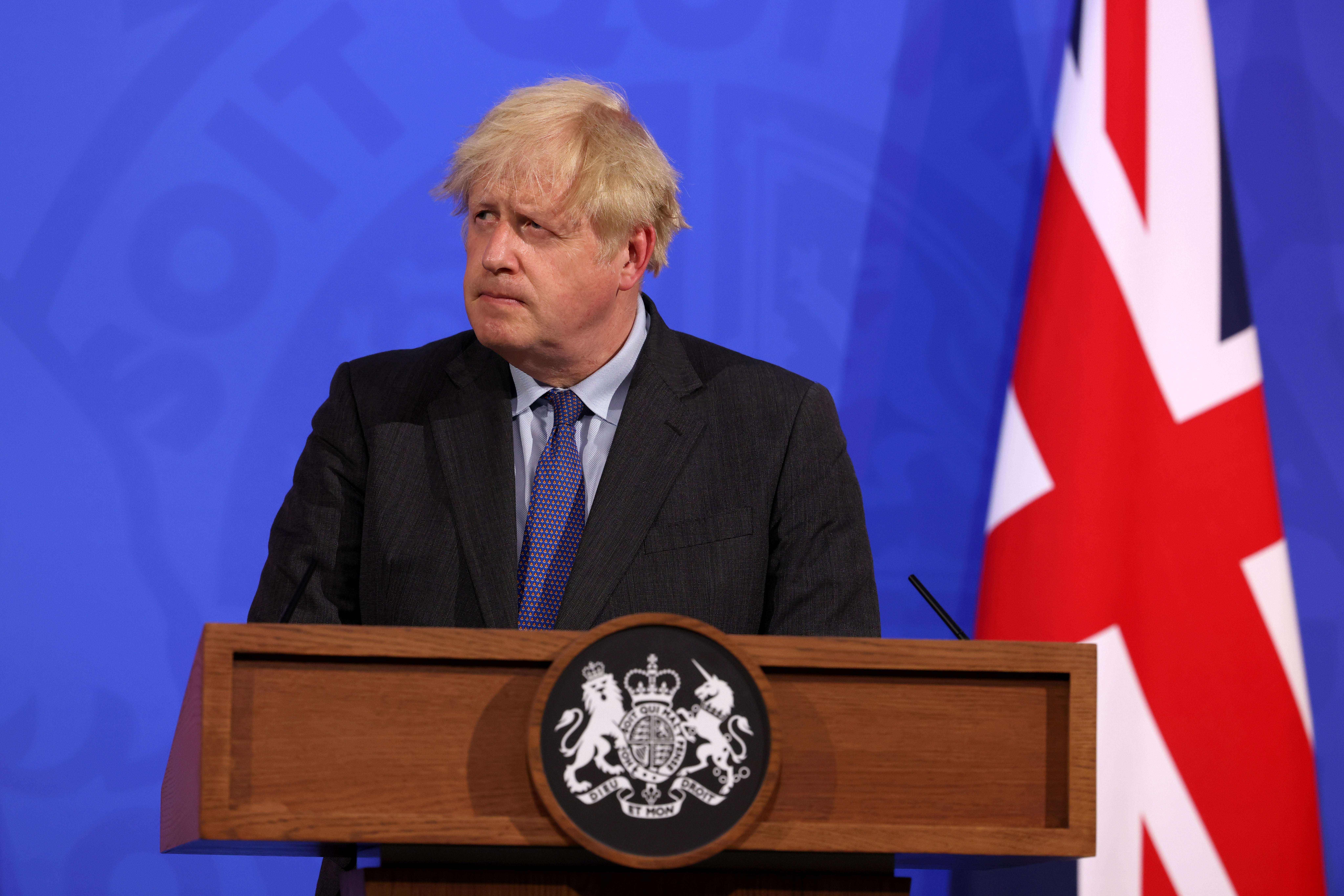Is Labour right to blame the delay in lifting lockdown on Boris Johnson?
Keir Starmer says the prime minister acted too slowly (as usual) and is now paying the price, but the reality is more complex, writes John Rentoul


Keir Starmer says Boris Johnson is to blame for the delay to the lifting of Covid-19 restrictions, because he failed to put India on the red travel list until too late. Matt Hancock, the health secretary, told the House of Commons last night that the government could not have been expected to act on evidence that wasn’t available at the time. Who is right?
Inevitably, they both are. Nick Thomas-Symonds, the underrated shadow home secretary, called in January for all international arrivals to be required to quarantine in a hotel. If that had happened, or if it had applied to all countries on the amber list, including India, then fewer cases of the Delta variant would have arrived in the UK.
The spread of the variant would not have been prevented, but it would probably have been delayed by a few weeks, enough to allow many millions more vaccinations.
But Hancock is right that the Delta variant was not identified as a “variant under investigation”, let alone a “variant of concern”, until 6 May, two weeks after India was put on the red list. He said: “I took action to tackle this variant before it was designated even as a variant under investigation, because I was worried about what was happening in India.”
Hancock called Jonathan Ashworth, his Labour shadow, “Captain Hindsight” and accused him of moving “towards a position of never escaping from restrictions”. He said Ashworth’s argument was that “this is all due to the government not taking decisions on India, based on information that we did not have at the time”.
Perhaps the health secretary was grumpy about being called to the Commons late at night by Lindsay Hoyle, the speaker, but he overstated his case. There were concerns about rising cases in India long before the government acted on 23 April.
As Yvette Cooper, the Labour chair of the home affairs committee, pointed out to Hancock, “By late March, Canada was warning of high levels of Covid cases arriving from India. By early April, similar warnings were coming out of Hong Kong.” She also pointed out that the announcement that India was going on the red list was made four days in advance, which meant that there was a rush of people to get to the UK before hotel quarantine was required.
The situation was similar to the emergence of the Alpha variant in December. The figures showed that Covid cases were rising unexpectedly fast in Kent for some days before the new variant was identified. The government then acted quickly, despite the prime minister’s reluctance because he wanted to stick to his plan for a “normal Christmas”.
In the case of India, it has been alleged and never convincingly denied that Boris Johnson was reluctant to act because he didn’t want to call off his trip to the country, which was important to his ambitions for a post-Brexit trade deal.
On both occasions, a different prime minister might have acted differently. A more Covid-averse leader, who was less nervous about the economic damage, might have acted preemptively at the first sign of trouble, without waiting for definitive information.
Thomas-Symonds in his speech today quoted Sir Patrick Vallance, the government’s chief scientific adviser, who said in January: “You’ve got to go hard, early and broader if you’re going to get on top of this. Waiting and watching simply doesn’t work.”
What I find most interesting about all this is that a prime minister who locked down or closed borders without waiting for the evidence would have been supported by the general public, who have throughout coronavirus supported earlier and more severe restrictions.
As the snap opinion poll by YouGov confirmed today, the delay in lifting restrictions is overwhelmingly supported by the British people, by 71 to 24 per cent. And yet people tend not to blame the prime minister for the delay. Another snap poll, by Savanta ComRes, found that only 23 per cent assign most blame to the government, whereas 28 per cent blame the public more for not obeying the restrictions – a view for which I think there is no evidence whatsoever.
Another 38 per cent blame the government and the public equally, which is the cop-out answer that probably reflects the true view, which is that most people are not sure anyone is to blame, and think that the prime minister has to make difficult decisions in an unprecedented situation.
This is bad news for Starmer and Thomas-Symonds, who have made a consistent and powerful case for a more Covid-precautionary policy. And it fits with a focus group of floating voters convened by Kekst CNC for Times Radio this week, in which a woman said that she didn’t really know much about Starmer, but when she heard him called “Captain Hindsight”, she thought it made complete sense, because she only ever heard him complaining after the event.
The hindsight charge against Labour is unfair, because the party often argued for a different approach at the time, and if we had done what Thomas-Symonds demanded in January we would almost certainly be in a better position now. But public opinion seems willing to give the government the benefit of the doubt, because there were also always good reasons for holding back from taking economically costly action.
Join our commenting forum
Join thought-provoking conversations, follow other Independent readers and see their replies
Comments